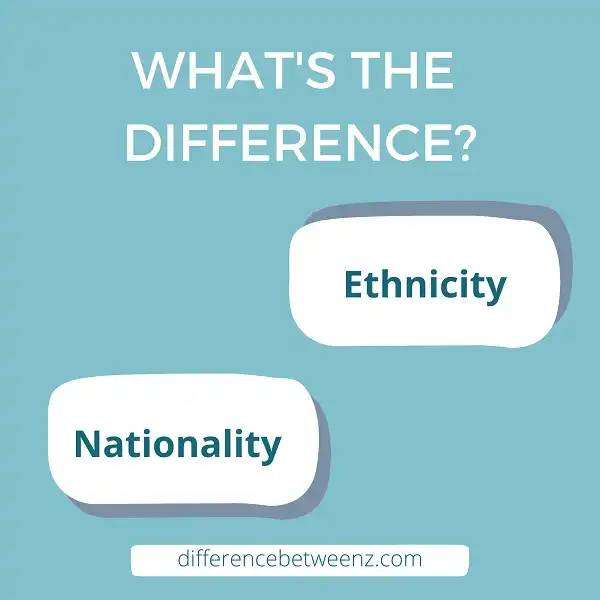Although ethnicity and nationality are often used interchangeably, they actually have different meanings. Ethnicity refers to a person’s cultural background, while nationality refers to a person’s citizenship. This is an important distinction to make because the two concepts can be quite different. For example, someone may be of Mexican descent but have American citizenship. Conversely, someone maybe from the United States, but have Mexican ethnicity. It is important to understand the difference between ethnicity and nationality when discussing these concepts with others.
What is Ethnicity?
Ethnicity is a term that is used to refer to a group of people who share a common culture, language, history, and/or ancestry. Ethnic groups are often distinguished from each other by physical characteristics, such as skin color or hair texture. However, it is important to note that ethnicity is not the same as race. The race is a biological categorization that is based on phenotypical traits, while ethnicity is a cultural identifier. Additionally, while an individual’s race cannot be changed, their ethnicity can be fluid. For example, someone may identify as Irish-American if they were born in the United States to Irish parents, even if they have never been to Ireland or do not speak the Irish language. Ethnicity is just one of many factors that can contribute to an individual’s identity. Others include nationality, gender, religion, and social class.
What is Nationality?
Nationality is a legal status that denotes membership in a nation. Nationality gives rights, privileges, and duties; it also provides a sense of identity. Nationality can be acquired through birth or naturalization. Birthright citizenship is when nationality is passed down from parent to child. Nationality can also be conferred by marriage. A person’s nationality may change if they move to another country or if their country of citizenship changes. Nationality may also be lost if a person renounces their citizenship. Nationality is different from ethnicity, which refers to a group of people with shared cultural traditions and ancestry. However, the two concepts are often conflated. Nationality is a legal status while ethnicity is an identity. Thus, a person can have multiple ethnicities but only one nationality.
Difference between Ethnicity and Nationality
Ethnicity and nationality are often used interchangeably, but they actually refer to two different concepts. Ethnicity is a term used to describe a group of people who share common cultural characteristics, such as language, religion, or history. Nationality, on the other hand, is a legal designation that refers to a person’s country of citizenship. It’s important to understand the difference between these two terms because they can have a significant impact on a person’s identity. For example, someone may identify strongly with their ethnic heritage but have little connection to their country of citizenship. Or, someone may consider themselves to be part of multiple ethnic groups. The key thing to remember is that ethnicity is about culture while nationality is about legal status.
Conclusion
Ethnicity and nationality are two important identifiers that people use to define themselves. While they both play a role in shaping our identities, they are not interchangeable concepts. Nationality is based on citizenship and ethnicity refers to a shared culture. It’s important to understand the difference between these two terms when discussing diversity and inclusion in order to avoid confusion and create a more inclusive environment for everyone.


